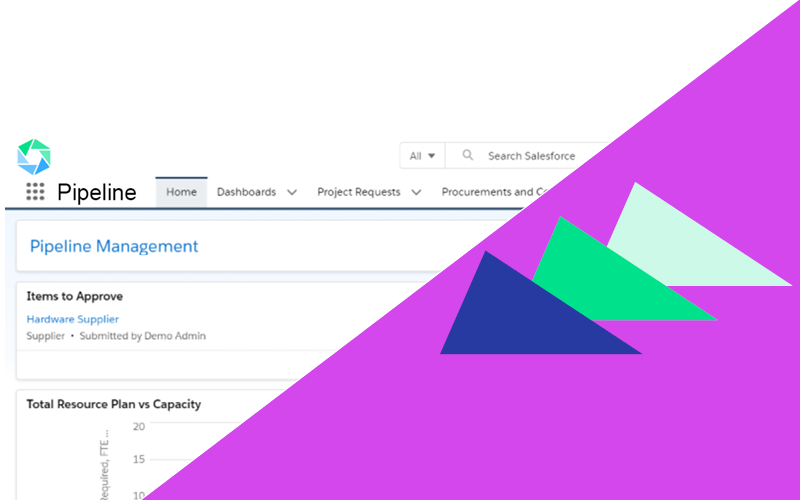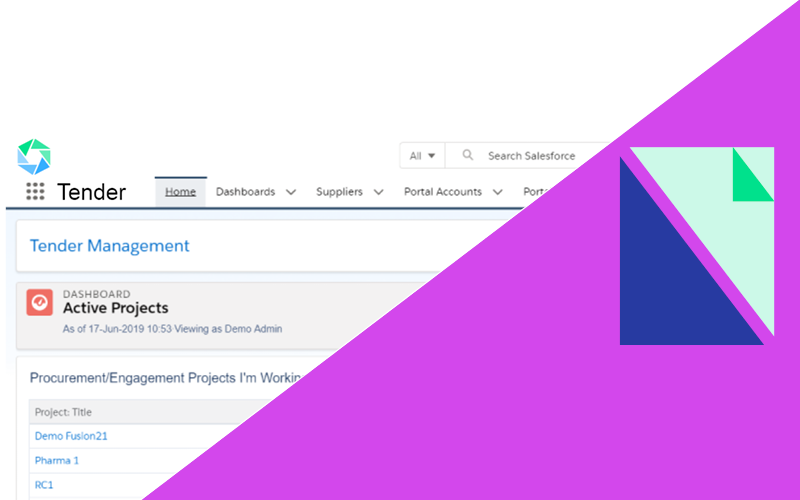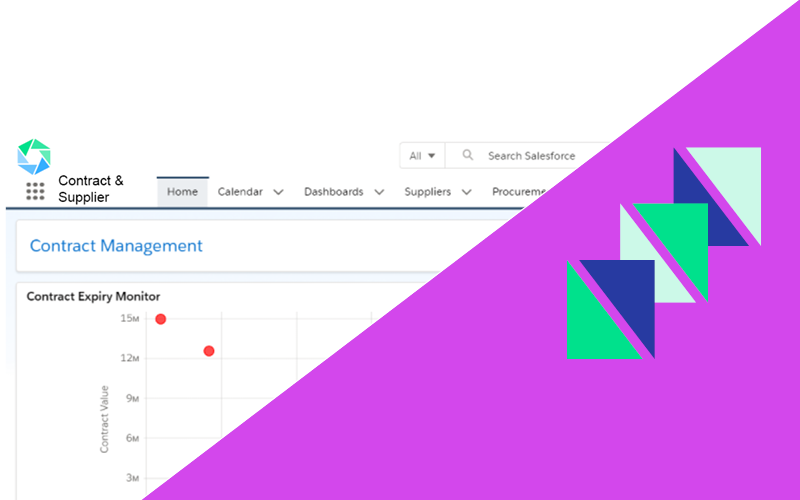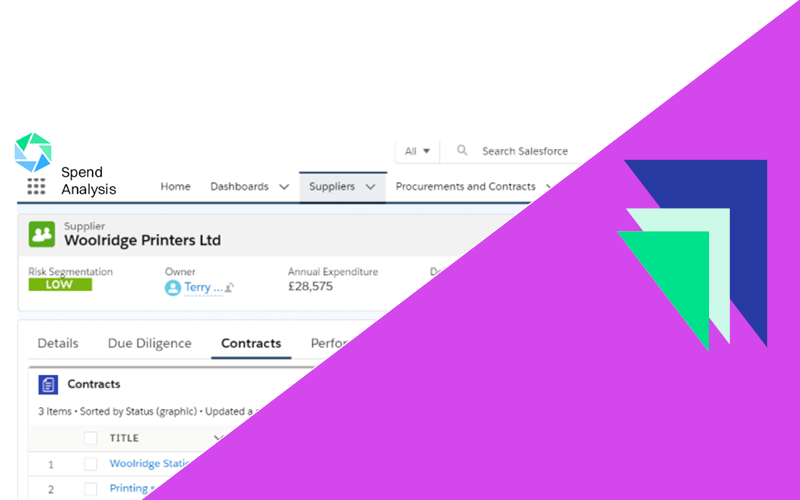Accurate and relevant data has become an essential asset for all business departments, including procurement. Procurement professionals need market intelligence to make informed procurement decisions. However, the collection of relevant data is made more difficult by changing external influences. For example, economic conditions, geopolitical factors and public health emergencies like global pandemics.
This is where procurement tools and software play a pivotal role. By providing procurement teams with real-time data, automated insights and streamlined supplier analysis, modern procurement technology ensures that organisations can make confident, data-driven purchasing decisions.
In this article, we will look at the supply market intelligence available, where to source it, and how procurement tools and software can help procurement teams gain a competitive advantage.
What is supply market intelligence?
Procurement cannot source a product or service successfully without understanding the market the supplier operates in. Supply market intelligence is external information that companies use to find and manage the supply of goods and services. It includes information on markets, customers, competition and suppliers.
Sourcing supply market intelligence
To build an effective procurement strategy, procurement teams need to gather intelligence from multiple sources. Using procurement software solutions will help teams to consolidate these insights into one place. This provides a clear and actionable overview of the procurement landscape, allowing potential suppliers to make the best purchasing decision.
The Atamis system allows users to view supplier performance data, including trends in annual financials, daily credit rating analysis and share price indicators. This helps procurement teams to identify and mitigate the risk of failure.
1. Supplier Provided-Data
Suppliers are a useful source of information. They have specific knowledge about the markets they operate in, factors affecting the supply chain and products and services. However, procurement teams need reliable tools to assess the credibility of supplier claims and to ensure transparency. With procurement tools and software, organisations can get further information about suppliers from:
- Company websites
- Financial statements and annual accounts
- RFPs
- Face-to-face interviews
Combining these sources of data gives organisations a clear understanding of individual supplier performance. It also reduces the risk of appointing a supplier who won’t deliver on contractual obligations.
2. Internal Sources
If suppliers are already known to an organisation, there will be internal records they can access to get market intelligence data. If a company uses procurement management software, procurement teams can:
- Provide information on supplier performance (KPIs) and risk profile
- Interview internal stakeholders to find out whether they have a valuable and workable relationship with the supplier.
Having all supplier-related data in one procurement system allows teams to spot potential issues early and take corrective action before they escalate.
3. Desk research
There are many free resources available to procurement teams to keep them informed about industry trends competitor activity and economic shifts. Procurement software can help with:
- Gathering newsfeeds, analyst reports, price index forecasts and trade publications
- Setting up real-time alerts for supplier financial changes, regulatory updates and industry disruption
- Analysing competitors’ websites, blogs and social media activity
An internet search is a good starting point and can provide valuable information but shouldn’t be relied on as the primary source of data. The data may not be objective or relevant to the research being undertaken and may lead to poor decision making in the procurement process.
Research services
Another way of getting supply market intelligence is through an external provider. There are several different kinds of firms procurement teams can use.
Market research
Carry out independent research and provide high-level data on market trends. Research is usually designed for a broad audience, so may not contain the detail needed to make informed decisions.
Custom intelligence providers
Use a mix of internal and market data to provide evidence-based research. Will also carry out research directly with suppliers.
Hybrid intelligence providers
Offers a combination of custom and high-level market research data depending on what an organisation needs.
Why Procurement Teams Need Supply Market Intelligence
There are several benefits an intelligence-driven supply chain offers organisations.
Improves Risk Management
Market intelligence plays a vital role in supply chain risk management. It provides businesses with information to prepare for different scenarios and insight into supplier stability during the assessment process. It also provides early warning alerts to events that may impact a company’s ability to deliver goods or services.
Enhances Supplier Management
Market intelligence can help organisations find suppliers who are reliable and perform consistently. It ensures organisations are aware of changes to suppliers’ businesses and can take action to mitigate any negative impact. The information also gives more leverage for negotiations when contracts are due for renewal or with new suppliers.
Elevates Customer Satisfaction
Supply market intelligence helps companies create agile, streamlined supply chains so they can efficiently deliver cost-effective goods and services to their customers. Being better informed also means organisations can react proactively to customers’ needs and provide them with a better service.
Creates a Competitive Advantage
Agile organisations often have a competitive advantage over others in the market. Real-time market intelligence allows companies to react quickly to unforeseen disruptions. For example, moving suppliers if they appear to be in trouble financially.
Cost Savings
Procurement professionals can negotiate more effectively as they have in-depth knowledge of the market and suppliers.
Why Atamis is the Best Procurement Software System for Supply Market Intelligence
At Atamis, our procurement software solution consists of three modular procurement software applications:
- Atamis Pipeline App
- Atamis Tender App
- Atamis Contract & Supplier App
Plus, you can also choose from our variety of Enhancers to ensure your solution is completely tailored to your needs.
If you are looking for a smarter way to manage procurement intelligence and supplier data, book a free demo and discover how Atamis’ procurement tools and software can help you gain a competitive advantage.
 Our Pipeline App empowers your team to plan ahead and forecast for upcoming procurement activities.
Our Pipeline App empowers your team to plan ahead and forecast for upcoming procurement activities.  The Tender App allows your team to visualise all sourcing activities within your Atamis platform, from issuing tenders to receiving bids.
The Tender App allows your team to visualise all sourcing activities within your Atamis platform, from issuing tenders to receiving bids. Our Contract & Supplier App puts your team in firm control of your key supplier relationships and provides a central repository for all contracts.
Our Contract & Supplier App puts your team in firm control of your key supplier relationships and provides a central repository for all contracts.  Our Enhancers ensure your solution is tailored to your needs. Pick and choose additional functionality that fits your requirements.
Our Enhancers ensure your solution is tailored to your needs. Pick and choose additional functionality that fits your requirements. 